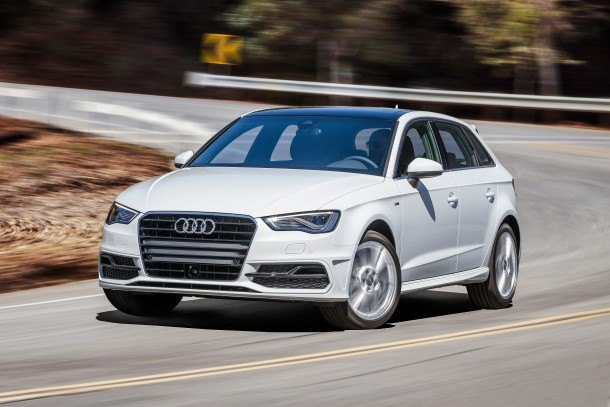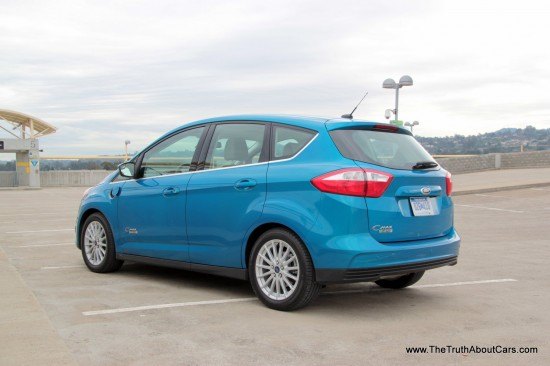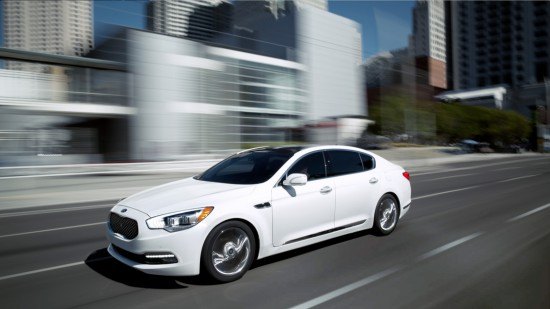#EnvironmentalProtectionAgency
Fix Due Friday For Volkswagen's Dirty Diesels
Volkswagen will have to submit Friday its plans to the California Air Resources Board and Environmental Protection Agency to fix hundreds of thousands of illegally polluting cars in the U.S., Reuters reported ( via Automotive News). Although a fix is due today, testing that fix could take months before it would be installed in cars.
The deadline for the automaker comes after it announced it would ask Michael Steiner, head of Porsche development and quality, to oversee Volkswagen’s compliance with officials worldwide to fix up to 11 million cars. In Europe, Volkswagen demonstrated a fix for its 1.6-liter diesel engine that included an air sensor and software update that cost around $10.68, according to German outlet Wirtschaftswoche.
Volkswagen has said that its newer cars would likely only need a software update to be compliant. Older cars that are equipped with EA189 2-liter diesel engines may need more costly fixes.
Volkswagen, Audi Meeting With US Officials To Talk Fix
Officials from Volkswagen will meet with U.S. environmental regulators this week to discuss how it plans to fix nearly 500,000 illegally polluting cars, according to Reuters. Officials from Audi will meet with regulators separately.
According to the report, Friedrich Eichler, VW’s powertrain development chief, will meet with officials from the Environmental Protection Agency and California Air Resources Board to discuss proposed fixes for its cars ahead of its Nov. 20 deadline.
This month, a source indicated to TTAC that Volkswagen would start fixing its cars in February, pending approval from the EPA and CARB.
Volkswagen Meeting With EPA To Discuss Diesel Emissions Program
Officials from Volkswagen will meet Thursday with the Environmental Protection Agency to explain to regulators how a “temperature conditioning” mode isn’t illegal, Reuters reported ( via Automotive News).
“(Auxiliary Emission Control Device) software does not alter emissions levels, but it ensures after a cold start (of the engine) that the catalytic converters quickly reach their working temperature and emissions cleaning takes effect,” VW said, according to Reuters.
In its notification to the automaker Monday, officials from the EPA specifically outlined how a “temperature conditioning” mode, specifically timed to the length of the EPA’s initial tests, reduced emissions up to nine times in cars equipped with VW’s 3-liter diesel engine.
Volkswagen, EPA Disagree on 'Defeat Device' in 3-liter Models
Responding to the Environmental Protection Agency’s notification that it had uncovered an illegal “defeat device” in some 3-liter, diesel Audi, Volkswagen and Porsche models, Volkswagen AG said in a statement Monday that it “wishes to emphasize that no software has been installed in the 3-liter V6 diesel power units to alter emissions characteristics in a forbidden manner.”
The statement flies in the face of the EPA’s allegation that a “temperature conditioning” mode in the vehicles’ computers timed exactly to the length of the agency’s 75 initials emissions tests allowed the cars to reduce emissions of nitrogen oxides by up to 9 times.
Germany Orders Volkswagen to Fix Dirty Diesels Faster
German transportation authority KBA on Thursday ordered the mandatory recall of 2.4 million Volkswagen cars with illegally polluting diesel engines, in part, because the German automaker’s proposed timetable wasn’t fast enough, Automotive News reported.
The forced recall will mean Volkswagen would likely spend more to fix its cars faster and German officials have told the automaker to submit a proposed fix by the end of November. Volkswagen initially planned for a voluntary recall to begin next year.
Authorities in Switzerland and Austria followed Germany and announced the forced recall would apply to those cars too, Bloomberg reported.
This is Why Volkswagen Won't Pay $18 Billion
It’s entirely possible that the Environmental Protection Agency could levy the largest ever civil penalty for Clean Air Act violations against Volkswagen after the automaker lied about emissions from their diesel engines.
In 2014, the government agency fined Hyundai and Kia $100 million for spewing 4.75 million metric tons of greenhouse gases above what they reported for 1.1 million cars.
For Volkswagen, using the EPA’s own penalty worksheet (which is apparently a thing), the fine may be substantially more than that levied against the Korean automakers — about $3.15 billion more.
Here’s how we got that number.
Feds Say They'll Tighten Emissions Tests to Catch Cheaters
Officials from the Environmental Protection Agency said this week that they’ll change regulations to hopefully catch carmakers who cheat on emissions tests in the future.
EPA Administrator Gina McCarthy told reporters at a Wall Street Journal forum Tuesday that the agency would be “upping its game” to stop automakers like Volkswagen from creating two dramatically different emissions cycles for its cars — a cleaner “testing mode” and a dirtier real-world mode. The agency said it would also crack down on automakers who lie about real-world fuel economy.
“Writing regulations takes time,” EPA’s director of the Office of Transportation and Air Quality Chris Grundler told the Detroit News. “When you are working in the rapidly changing environment that we’re in right now, we want to make sure that we are agile enough and flexible enough to change with those times.”
Volkswagen's Diesel Cars Have Been Sitting At U.S. Ports For Months
Back in July, TTAC reader Stephen told us that his recently ordered 2016 Audi A3 TDI was sitting at port for an unknown reason and his dealer and Audi couldn’t give him much of a reason why.
“(The cars) are being held at the port as they have not been cleared by Quality and Logistics to be released for port processing yet,” a distribution advocate for Audi wrote in July.
As weeks wore on, Stephen alerted us to the varied responses he received from Audi, which ranged from “quality review” to “government certification.” We reached out to Audi on his behalf and heard from a spokesman that the cars were sitting at port awaiting a certificate of compliance from the Environmental Protection Agency, despite being identical to 2015 models that had already been certified.
Consumer Reports Strips 'Recommended' Rating From VW TDIs
This is hardly the most severe fallout from Volkswagen admitting that it installed “defeat devices” on some of its diesel models to help pass emission tests, but it’s the first of many.
Consumer Reports announced Friday that it was stripping the models of its “recommended” rating until recall repair work was complete on those cars. The publication had bestowed the ratings on Volkswagen’s Jetta TDI and Passat TDI models.
On Friday, the Environmental Protection Agency said it would force VW to recall nearly 500,000 diesel cars for the illegal “defeat device” that could detect when it was being tested for emissions and reduce nitrogen oxide emissions by 10 to 40 times beyond its normal operations. The EPA could fine VW up to $37,500 for each car that violates its standards, which could tally up to $18 billion in fines.
EPA: Industry Exceeded National GHG Emissions Standards In 2013
According to the Environmental Protection Agency, the auto industry outperformed national greenhouse gas emissions standards for a second consecutive year.
Sweers: Diesel Power Not Coming To Toyota Tacoma
Hoping for diesel power in the new Toyota Tacoma? You can breathe now.
Hyundai, Kia $360M US Justice Department Settlement Approved In District Court
The $360 million settlement between the U.S. Department of Justice and Hyundai and Kia for overstating fuel economy figures was approved Tuesday by the U.S. District Court for the District of Columbia.
EPA: 2016 Honda HR-V Nets 31 MPG Combined
Those shopping for a small, fuel-efficient crossover can now add the 2016 Honda HR-V to the list, thanks to its EPA-certified 31 mpg combined rating.
EPA Proposes Stricter Ground-Ozone Level Standards
Six years ago, the Environmental Protection Agency set the acceptable level of ground-level ozone to 75 parts per billion. That level is about to come down.
Hyundai, Kia Fined $300M By State, Federal Agencies Over Erroneous Fuel Economy Numbers
Being an asterisk regarding fuel economy numbers isn’t the only penance Hyundai and Kia must pay: The U.S. Department of Justice, the Environmental Protection Agency and the California Air Resources Board dropped a collective $300 million penalty on the South Korean brands for mistating fuel economy numbers on their respective 2011-2013 lineups.























Recent Comments